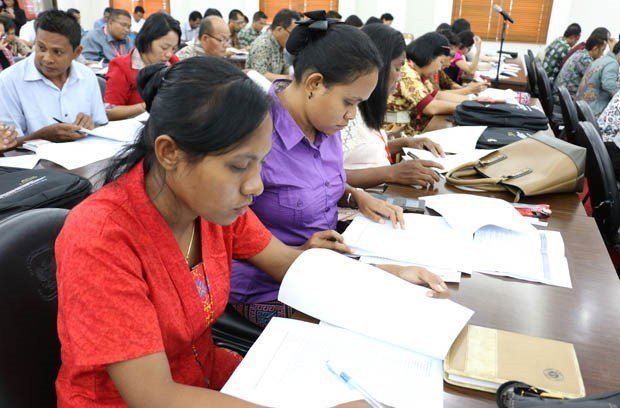
Civis 005/2016
IMPLICATION: HORIZONTAL RELATIONSHIP, TREASURING EQUALITY, NOT HIERARCHICAL-AUTHORITARIAN STYLES.
Second, the outdated vertical relationship, one between the Ruler and the People, has changed into a horizontal one. When sovereignty is owned by the state, state officials have power not unlike kings and aristocrats in the past in comparison to the people. It’s unsurprising that people were eager to be state officials. However, the amendment on the 1945 Constitution transformed this relationship into a horizontal-oriented one because now every citizen has the same rights and responsibility as stated by the Constitution. Equality.
However, the hierarchical and authoritarian culture won’t go away so easily by itself. The people need to learn to work together to appreciate equality. Without a political culture to hold it up, democracy cannot grow properly. According to Larry Diamond (1999), a lot of civic organizations in Africa fails to strengthen democracy because their organizational culture doesn’t implement equality but rather, it is centralized around a few of their leaders. As a result, conflicts and money politics take place through these elite circles.
To transform this culture, people must learn to work together in groups and organizations in order to tackle collective problems. The relationships within these groups must be horizontal, valuing equality, in order for their members to trust each other enough to cooperate and have reciprocal relationships. Robert Putnam (1993) claimed these to be characteristics of a civic community.
The more civic communities grow in society, the stronger democracy is. Based on his research in Italy, Putnam (1993) concluded that this characteristic of civic life strengthens democracy and pushes economy growth. To us in Indonesia, our culture of mutual cooperation resurfaces and finds itself to be relevant yet again in its manifestations in various local cultures.
(Delivered in The Church and Post-New Order Politics seminar held at Oase Intim Foundation in Makassar, February 13, 2012).

Matius Ho
Executive Director, the Leimena Institute
After completing his undergraduate and graduate studies at the University of Wisconsin, Madison (USA) and the London Institute for Contemporary Christianity (UK) in 1997, Matius Ho joined the Accenture, a multinational consulting firm, and developed IT infrastructure in telecommunication and retail industries in Indonesia and Singapore. Afterwards, he was appointed as a Director in a manufacturing and export company. He served as the Vice Secretary of the Akademi Leimena Foundation, a precursor of the Leimena Institute, before co-founding the Institute in 2005.
